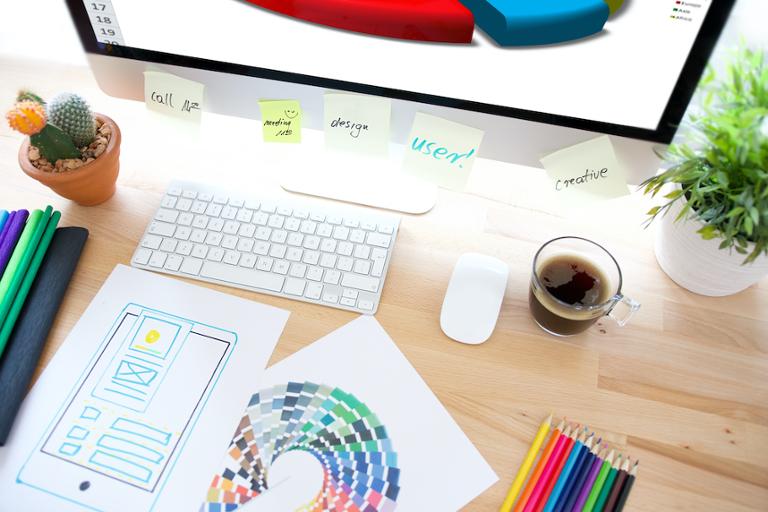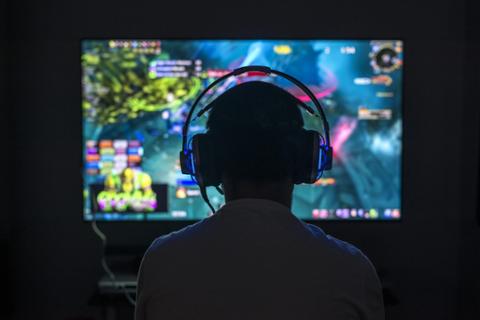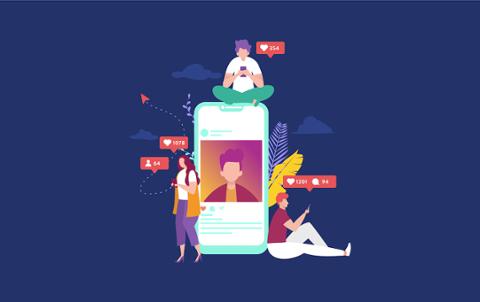What kind of interview questions for web designers pop up during the job-application process?
According to Burning Glass, which collects and analyzes millions of job postings from across the country, the projected growth in web-designer jobs should hit 14.9 percent over the next decade. The average time-to-fill for open positions is 34 days, indicating a healthy need by employers for those who can design websites.
While demand for web designers is indeed steady, the sheer number of websites out there means companies are looking for designers with ideas that can help set their assets apart. In a world increasingly dominated by mobile devices, agile sites that work across platforms are a must; do you have the skills to offer an employer looking for a top-notch web design professional?
Dice spoke with Jim Halpin, LaSalle Network’s Unit Manager of Technology Services, as well as Kyle Rickert, the company’s senior project manager and software engineering practice lead, to figure out how you should prepare, the actual interview questions for web designers… and how you should answer in most cases in order to grab the gig.
Things to Know Before You Go to the Interview:
What are the challenges faced in a web designer position?
As Halpin explained, one of the biggest challenges that web designers face is not just the technical aspects of the job, but how they are also expected to work with marketing teams and different executive teams. “Soft skills” and teamwork, in other words, are almost always key to success in the position.
“A lot of the intangibles revolve around the fact that, although they have to be able to do the job technically, they must also have the communication skills to be successful,” he explained. “A web designer is going to have more involvement with stakeholders than a back-end engineer, so they need to understand the user experience and have a consultative mind-frame, and then be able to translate that view to a technical capacity.”
What are the most important web developer skills I should know?
Rickert noted that, while every web-designer environment is going to be different, some form of CSS, JavaScript and HTML, as well as experience working within UX design, are going to prove essential skillsets in most circumstances.
“Some places might also be looking for more advanced concept management systems skills, but on a basic level, firms are going to be focusing on are those three,” he said.
However, mobile skills are “absolutely” a value add, as companies continue to move in that direction, and will increasingly become important in the future, he noted.
“Even if a web designer is not familiar with iOS or Android development, they should understand the concepts of responsive design,” he said. “For our clients with e-commerce presence, they want candidates with experience on some of those platforms. There are a lot of users who are making transactions on their phones, and having that experience would make them go-to candidates for those clients.”
According to Burning Glass, here are some of the top web designer skills valued by employers. Obviously, knowing the specialized skills will give you an advantage over other candidates when it comes to landing the position:
How do I succeed in a web designer interview?
Halpin said the most foundational piece of a successful interview is bringing along some sort of portfolio or examples of work to show. Ensure that your portfolio is up-to-date and presentable, and be prepared to discuss why you made certain decisions with regard to layout, format, and technology.
“The best advice I always give is, ‘Come into it ready to provide solutions to problems they’re already having before you even get the job,’” he said. “Showing the examples of the work you’ve done in the context of providing that company with solutions will help put your name at the top of the list pretty quickly.”
As Halpin explained, some clients will even send him examples of problems they’re having, which allows prospective web design candidates the opportunity to offer up solutions to those issues. “If you go in with a consultative mindset and be able to provide a recommendation, or also do some research on looking up the company website, look at all the webpages, and go through and have some talking points you can bring to the interview, that goes a long way,” he said.
Rickert also noted it’s important to speak to the types of teams you’ve worked with, and the relationships you’ve developed and how you’ve worked through problems together. That shows the more collaborative nature of your work.
How to Respond During the Web Designer Interview:
What is your greatest achievement as a web designer?
“If you can show cause and effect, the most important thing is to be able to show quantifiable results,” Rickert said. “It’s not just about your ‘I did this’ experience, it’s about how you worked with other people to make sure the code you wrote affected the organization as a whole in a positive way.”
According to Halpin, being able to understand the business reason or logic behind a success—for example, a website you created that got a large number of views, which increased advertising revenue—allows you to demonstrate your effectiveness without seeming big-headed.
“Having some metric around how that impacted the business is going to set you apart from just being a designer, make you a more marketable person, and show how you can have a greater impact on the business side of things,” he said.
Why do you want this job?
“That’s a big one, and that’s one of the most common questions not just for web designer but for everyone,” Rickert said. “You have to be prepared to answer that question—companies want you tie your response in to a value-add that you can both work on together. That’s something we prep every candidate for.”
He recommends starting by expressing your passion for web design, and your excitement about working at the company for reasons that tie into their core mission. Specificity is key.
“Then go a layer above that, and talk about how you recognize opportunities in areas where you can learn—maybe a CMS system you haven’t worked with before,” Rickert added. “Use this question to display your strengths and tie it into how you can both grow together.”
What questions should I ask during a web designer interview?
Halpin said it’s best to ask forward-thinking questions, such as what technologies the company is planning to implement, what’s coming down the pipeline, and how the role of web designer factors into that roadmap.
“We advise our candidates to ask as many questions about responsibilities as possible—there’s a high demand for these people, so they should make sure it’s the right culture fit,” he said.
For web designers, Rickert said questions such as, “What’s the projected traffic or visibility of the website?” or questions about changes in coding and design frameworks let potential hires know you’re thinking critically.
“Javascript is something that’s always changing, so that’s always a big topic—there’s a certainly a rabbit hole of conversations there—why they chose that framework, if they’re planning on moving to a different framework,” he noted.
Related Web Designer Jobs Resources:



